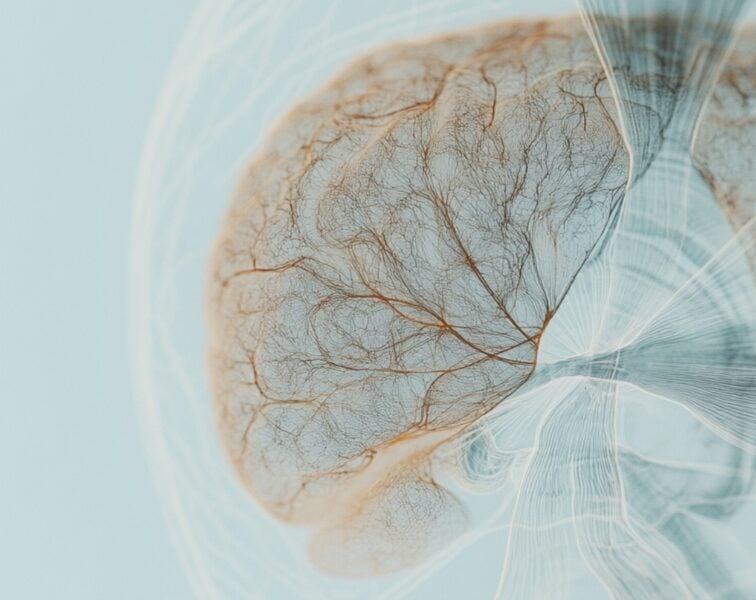In this episode, Francisco Gonzalez-Lima, a Professor of Neuroscience and Pharmacology & Toxicology, explains the vascular hypothesis of Alzheimer’s disease which says the central problem is a progressive neuronal energy crisis of impaired blood flow to the brain and impaired mitochondrial respiration. He walks us through the ways we can intervene in this process and also shares details of the exciting future of Alzheimer’s treatment and prevention.
Subscribe on: APPLE PODCASTS | RSS | GOOGLE | OVERCAST | STITCHER
We discuss:
- Background and interest in the brain [5:15];
- The unique nature of the human brain [9:15];
- Why we’ve made so little progress in Alzheimer’s research [23:00];
- The amyloid beta hypothesis [28:30];
- Hypometabolism in the brain leading to cognitive decline [39:30];
- Early signs of AD, and deciphering between age-related decline versus something pathologic [47:45];
- The vascular hypothesis of Alzheimer’s disease [54:00];
- The relationship between mitochondria, cytochrome c oxidase, and Alzheimer’s disease [1:08:00];
- Chronic inhibition of cytochrome c oxidase leads to chronic neurodegenerative disease [1:22:45];
- Major risk factors for AD, head trauma, and other forms of dementia [1:33:45];
- Methylene blue for treating and preventing neurodegeneration [1:38:15];
- Current standard of care for AD, and the reasons for a lack of advancement [2:01:45];
- Near infrared light as a targeted treatment for cognitive decline [2:05:30];
- The ketogenic diet as a treatment and preventative measure [2:13:15];
- Exciting future research coming from Francisco [2:23:00];
- Methylene blue for traumatic brain injuries [2:25:15]; and
- More.
Featured image credit: Quasar Jarosz at English Wikipedia [CC BY-SA 3.0 or GFDL]
Get Peter’s expertise in your inbox 100% free.
Sign up to receive An Introductory Guide to Longevity by Peter Attia, weekly longevity-focused articles, and new podcast announcements.
Would you like access to extensive show notes and references for this podcast (and more)?
Check out this post to see an example of what the substantial show notes look like. Become a member today to get access.

Francisco Gonzalez-Lima, Ph.D.
Francisco Gonzalez-Lima holds the George I. Sanchez Centennial Professorship at The University of Texas at Austin, where he is a professor in the Departments of Psychology, Pharmacology and Toxicology, and Psychiatry, and the Institute for Neuroscience.
Gonzalez-Lima’s teaching experience includes undergraduate, medical, graduate and postdoctoral students, and he currently teaches the core graduate course in Functional Neuroanatomy. Gonzalez-Lima has been the research adviser of 22 Ph.D. students at UT Austin, and his trainees are world leaders in brain research on the relationship between brain energy metabolism, memory, and neurobehavioral disorders.
Gonzalez-Lima graduated with honors from Tulane University in New Orleans with B.S. (biology) and B.A. (psychology) degrees, and he earned his Ph.D. (anatomy and neurobiology) from the University of Puerto Rico School of Medicine, which honored him with a Distinguished Alumnus Award. He completed postdoctoral training (behavioral neuroscience) at the Technical University of Darmstadt, Germany, as an Alexander von Humboldt research fellow.
Gonzalez-Lima has been a visiting neuroscientist in Germany, England, Canada, and Spain, and he has delivered more than 120 invited lectures about his brain research around the world. His research has been funded for more than 30 years with federal and private funds, and he has contributed to more than 350 scientific publications in peer-reviewed journals, conference proceedings, chapters, and books.
Current research in the Gonzalez-Lima laboratory focuses on the beneficial neurocognitive and emotional effects of noninvasive human brain stimulation in healthy, aging and mentally ill populations. This research primarily uses transcranial infrared laser stimulation and multimodal imaging (EEG, fNIRS, and fMRI) in collaboration with colleagues at UT Austin, The University of Texas at Arlington and University of Texas Southwestern Medical Center. Gonzalez-Lima supervises and trains students and residents to contribute to these ongoing brain research projects. [utexas.edu]



